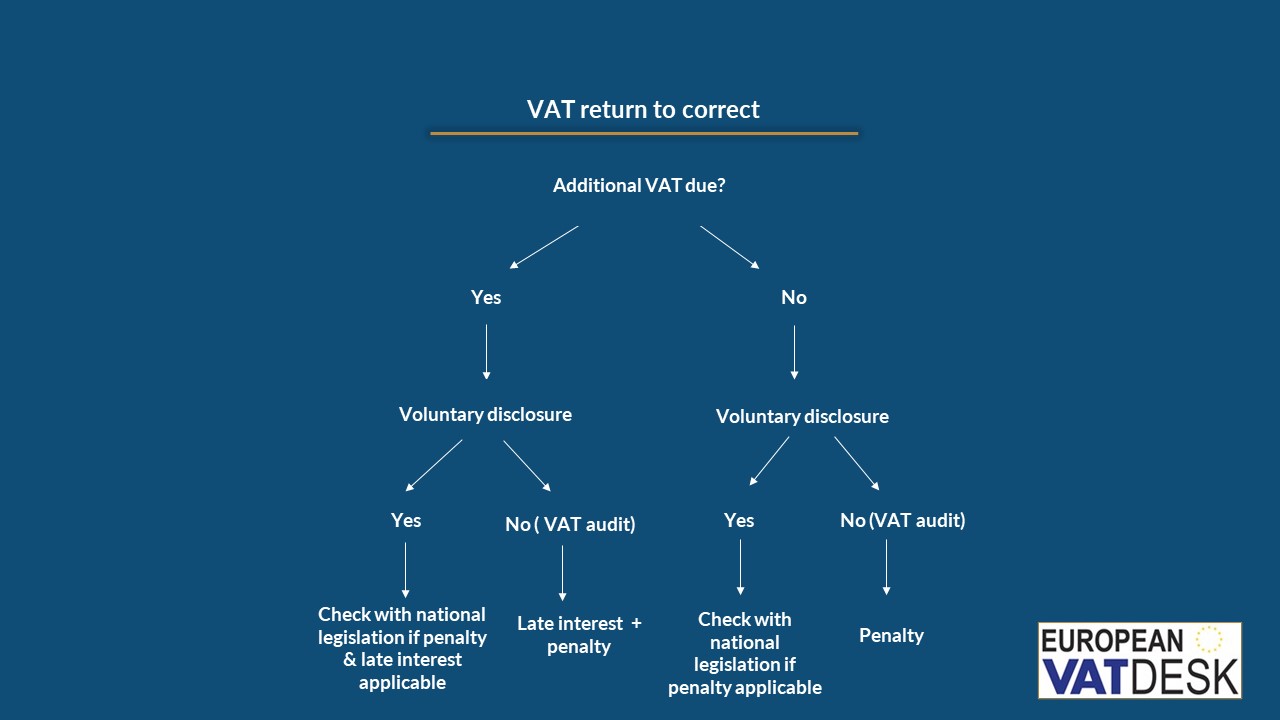The Author of the Article
Errors in your VAT returns
The rules of the game when it comes to VAT can be complicated to understand. As a result, it is not uncommon for businesses to make mistakes in their VAT returns: deducting VAT from a hotel bill when it was, in fact, not recoverable, entering an intra-Community transaction in the wrong reporting period, charging a purchase or sale to an incorrect box in the VAT return, etc.
What should I do if I discover an error in my VAT return?
You obviously need to correct it. But you still need to know how. The rules and administrative practices vary from country to country. Some countries (France, Poland, Hungary) require corrections to be made retrospectively by correcting the initial VAT return, while others (Belgium) allow corrections to be made in the VAT return following discovery of the error, or even require (Germany, Italy) that adjustments be made in an annual return.
What are the penalties for correcting a VAT return?
Two types of penalty are possible, depending on the nature of the error: administrative fines and/or interests on late payment. Some countries (Portugal, Spain) automatically apply fines for omissions or errors in VAT returns, while other countries (Belgium) are more tolerant and do not apply penalties for spontaneous corrections.
As for late payment interests, they are generally calculated when the correction of the return results in an additional amount of VAT to be paid: refusal to deduct VAT on an expense, an intra-Community sale reclassified as a local sale, etc. However, here too the rules vary from country to country.

The case of Poland
In Poland, the interest rate has been increased several times in recent years and varies between 8.25% (reduced interest rate), 16.50% (standard interest rate) and 24.75% (increased interest rate) depending on whether the adjustment is made spontaneously, during a tax audit or when the company has not complied with its VAT obligations (underestimation of the amount of VAT to be paid, overestimation of the amount of VAT to be recovered, failure to file the VAT return, etc.).
The case of Denmark
Since July 01, 2023, Denmark has had a very strict new policy on late payment interests. Failure to pay Danish VAT within the legal time limit, for whatever reason, has resulted in the automatic application of retroactive interests on arrears of 8.4% per annum, whereas previously Denmark did not apply any penalties.
The case of Belgium
In 2023, Belgium reduced interests on late payment from 9.6% to 8% per annum. However, this interest may be reviewed each year.
The VAT expert's eye
There are many and frequent errors in VAT returns, which is perfectly normal given the complexity of the VAT rules. But correcting VAT returns, even in good faith, can be costly. Firstly, because these corrections attract the attention of the local tax authorities and can lead to a tax audit. Secondly, because the local tax authorities will want to apply fines and/or interests for late payment.
So the best way to avoid problems in a foreign country is to have complete control over the cycle of your operations (purchases and sales) from a VAT point of view, and to document all your internal procedures (purchase orders, tax codes, etc.) so as to avoid having to correct your VAT returns as much as possible.